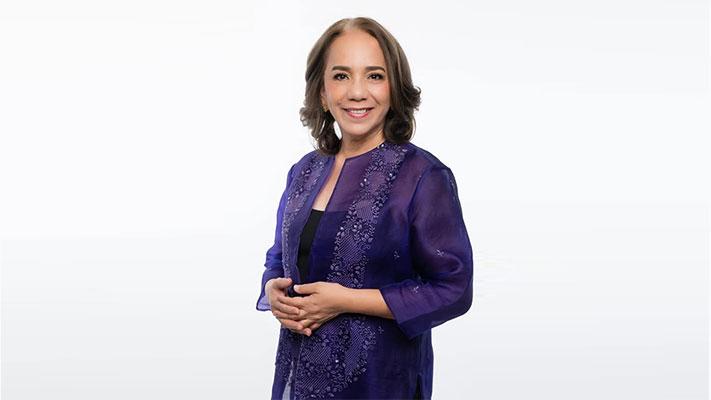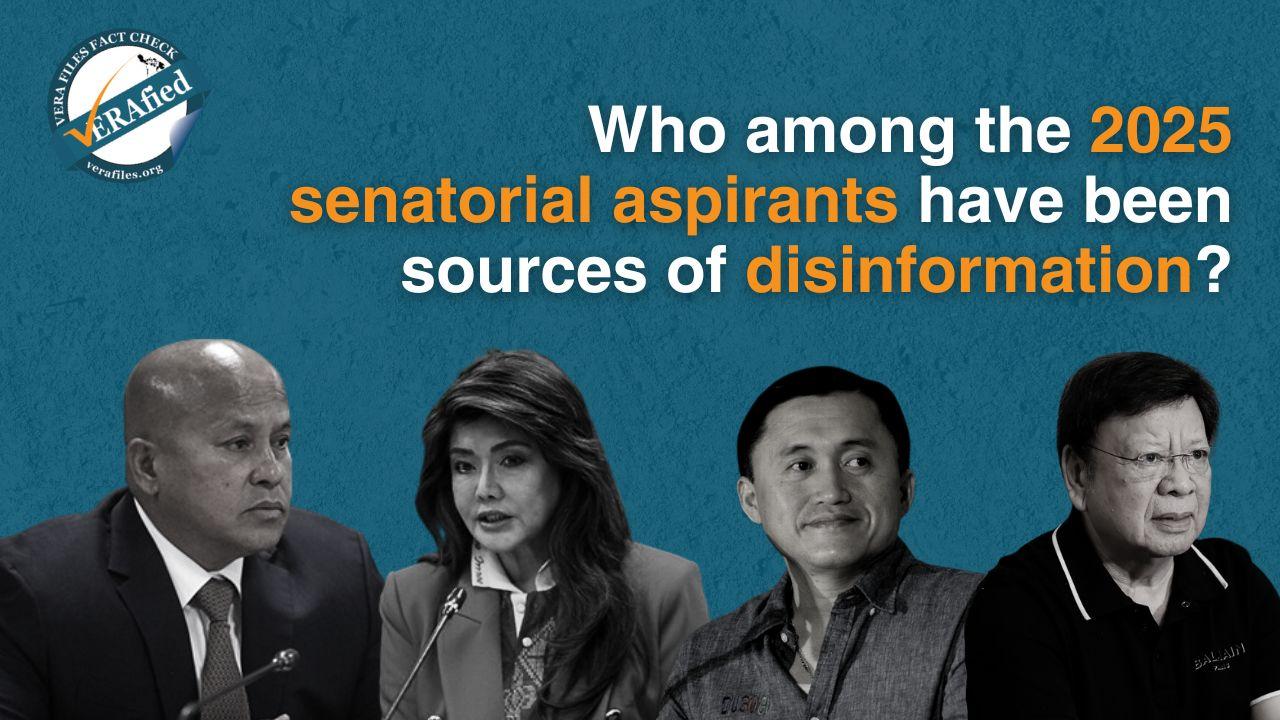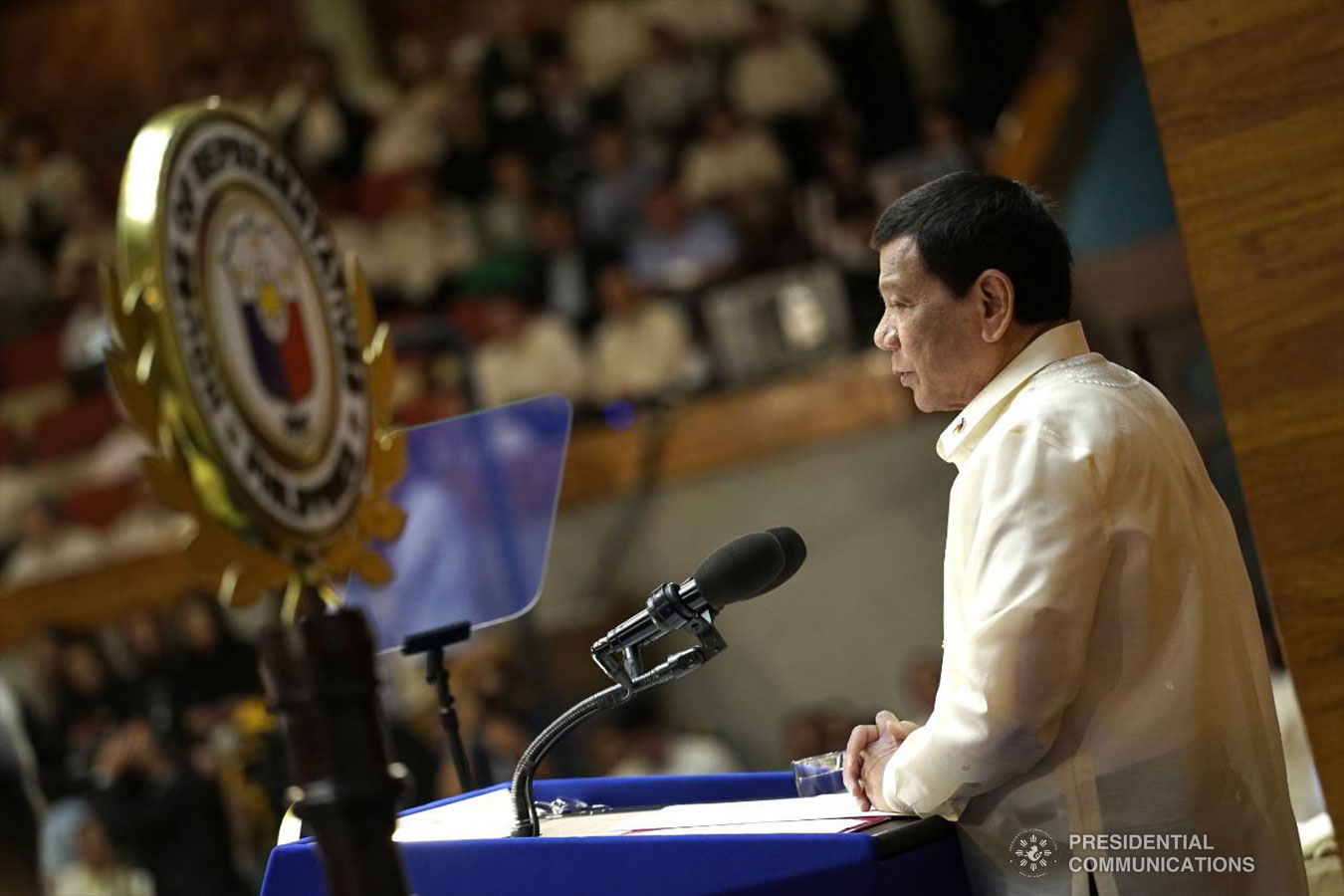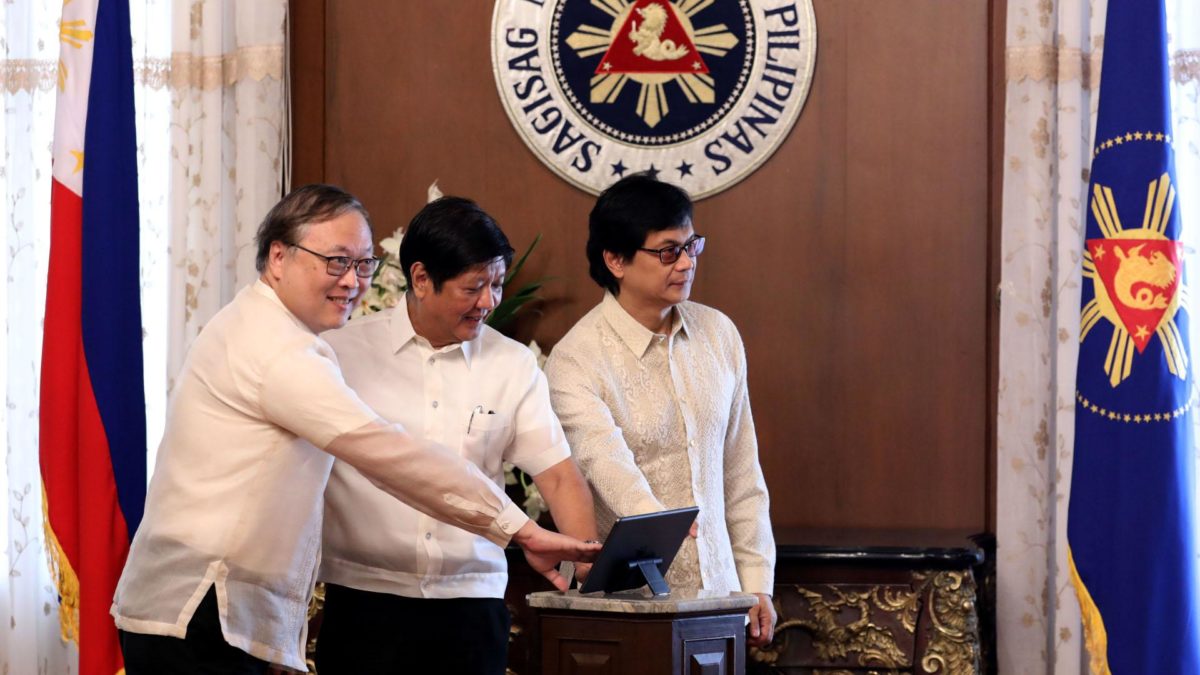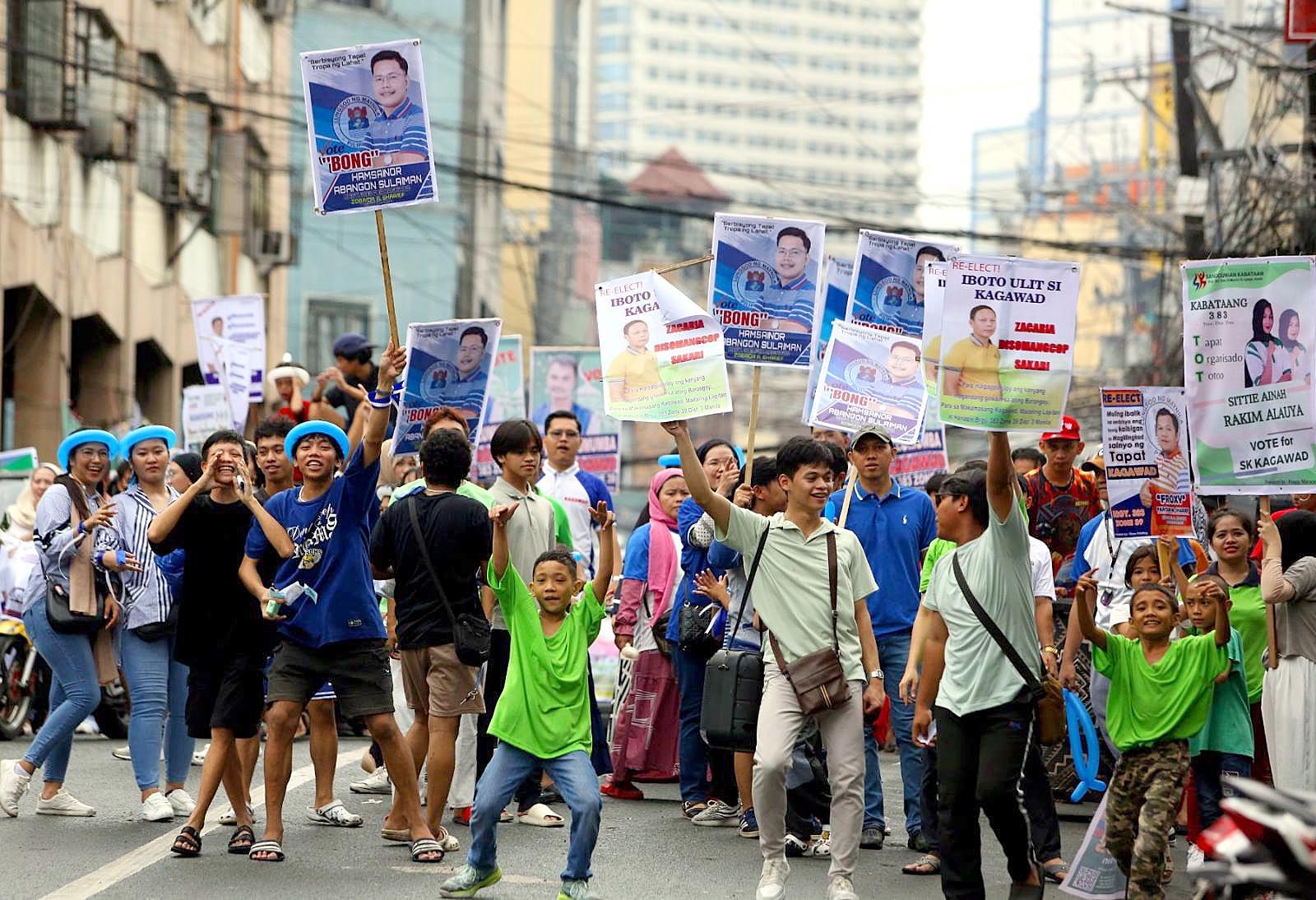Independent senatorial candidate and anti-corruption advocate Heidi Mendoza probably did not expect to go viral after the LGBTQIA+ community – or at least some of its members – publicly withdrew their support following her “unqualified no” stand on the SOGIE Equality bill.
It was not the withdrawal of support per se that made an impact, but her apology for disappointing people and the commitment to further study the bill and widen her understanding about the needs of the group that made the public sit up and listen.
This incident, while helping generate much-needed publicity, demonstrated how Mendoza is not a politician.
“Kasi kung politiko, you will negotiate a lot in order to win. Pero pinili ko pang mabugbog ng hate messages,” she said to reiterate that public service is her end goal.
She calls her decision to run “suntok sa buwan” (a shot in the dark). “Parang nade-desperate ka dun sa sistema na nakikita mo,” Mendoza lamented. After much thought and consultation, she resolved to use her experience in financial and fraud investigation and run for public office.
And while admitting that her campaign for a Senate seat in the May 12 midterm elections is “nakakapagod” (exhausting), the former government auditor remains steadfast in her wish to serve the public.
***
When Mendoza filed her certificate of candidacy in October, her only weapons were faith and that deep desire to be a public servant with a mandate – without being a politician. “Hindi pulitiko, kung hindi lingkod bayan” she stressed.
Without political machinery and the all-important war chest, she knew from the start it would be an uphill battle going against the well-entrenched, more popular and monied candidates who have capitalized on name recall and constant exposure to prop up their public image.
Two months on the campaign trail and the former Commission on Audit (COA) commissioner is realizing that running a national campaign is just as challenging as trying to survive in government, especially when working within a system that makes it difficult to do what is right.
She could just be enjoying retirement now after serving in government for 27 years, then as undersecretary-general of the United Nations Office of Internal Oversight Services, a college dean and professor, but Mendoza strongly felt another calling.
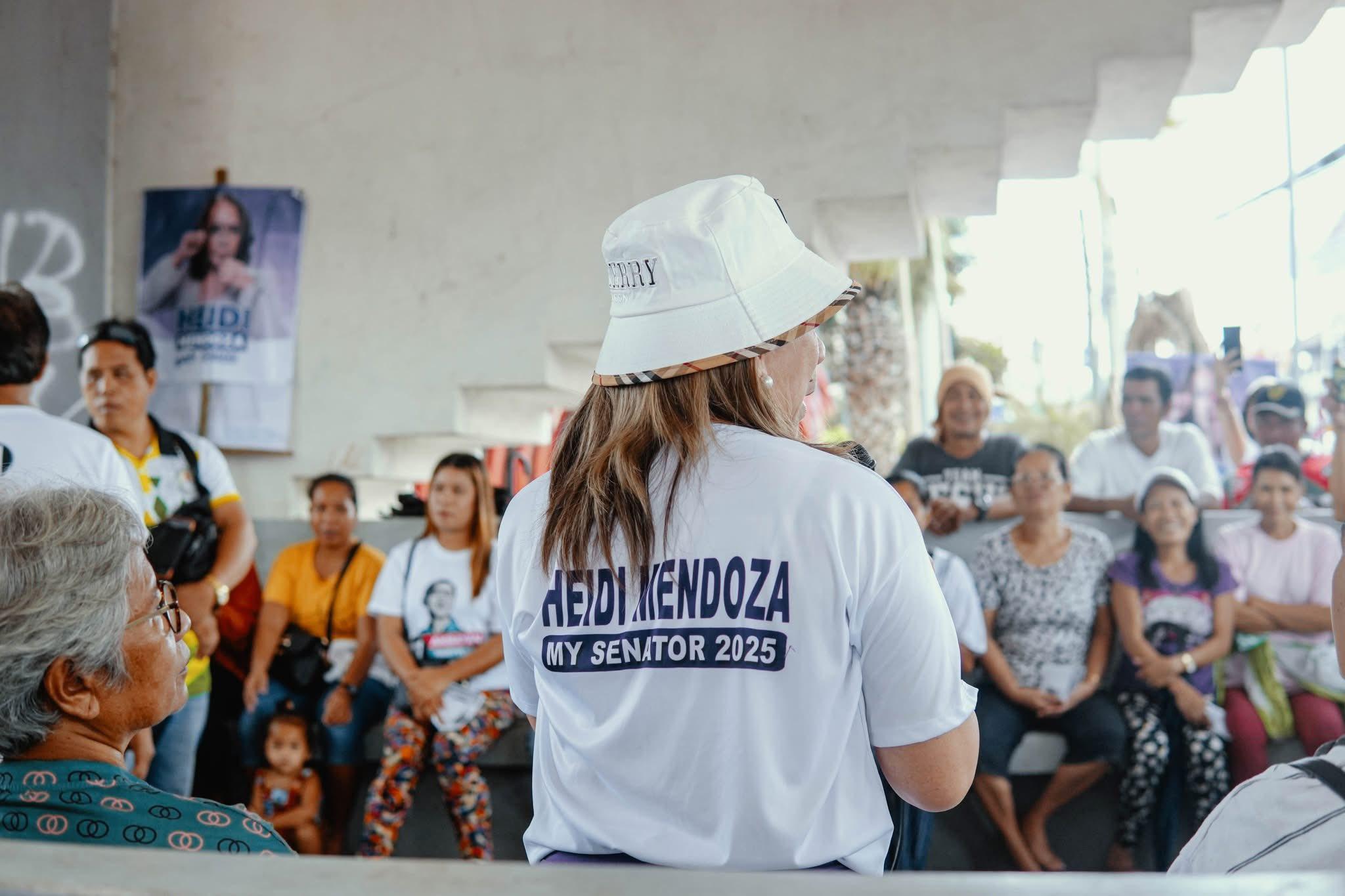
One of her biggest frustrations on the campaign trail is hearing over and over again that it is futile to run for national office without millions of pesos (P400 million, she was told) at your disposal.
But she figured wanting to serve the public is not only for those with money, she once said in an interview. If having millions is the only requirement to run for office, “hindi na tatakbo yung walang pera at yung walang balak magnakaw (those without money and have no plans to steal will not run),” Mendoza pointed out.
Getting creative
As a neophyte candidate with limited funds, she wracked her brain to come up with strategies to connect with voters. Mendoza knew that tapping social media would be an initial, cost-efficient step to reach out to people, especially the younger generation.
And as embarrassing and uncomfortable as it was, the 62-year-old accountant would sometimes resort to ‘entertaining’ netizens with a dance, song, or laughter to catch their attention and encourage them to follow and join her team.
Once her efforts to sell herself online picked up, it paved the way for building a digital campaign team. Little by little, Mendoza recruited volunteers (mostly young people) to help with the campaign, and soon a community had mushroomed with several volunteer groups across the country.
What keeps her going
It was then she realized that once people feel your sincerity, they are more than willing to give support even in small ways and not necessarily with money.
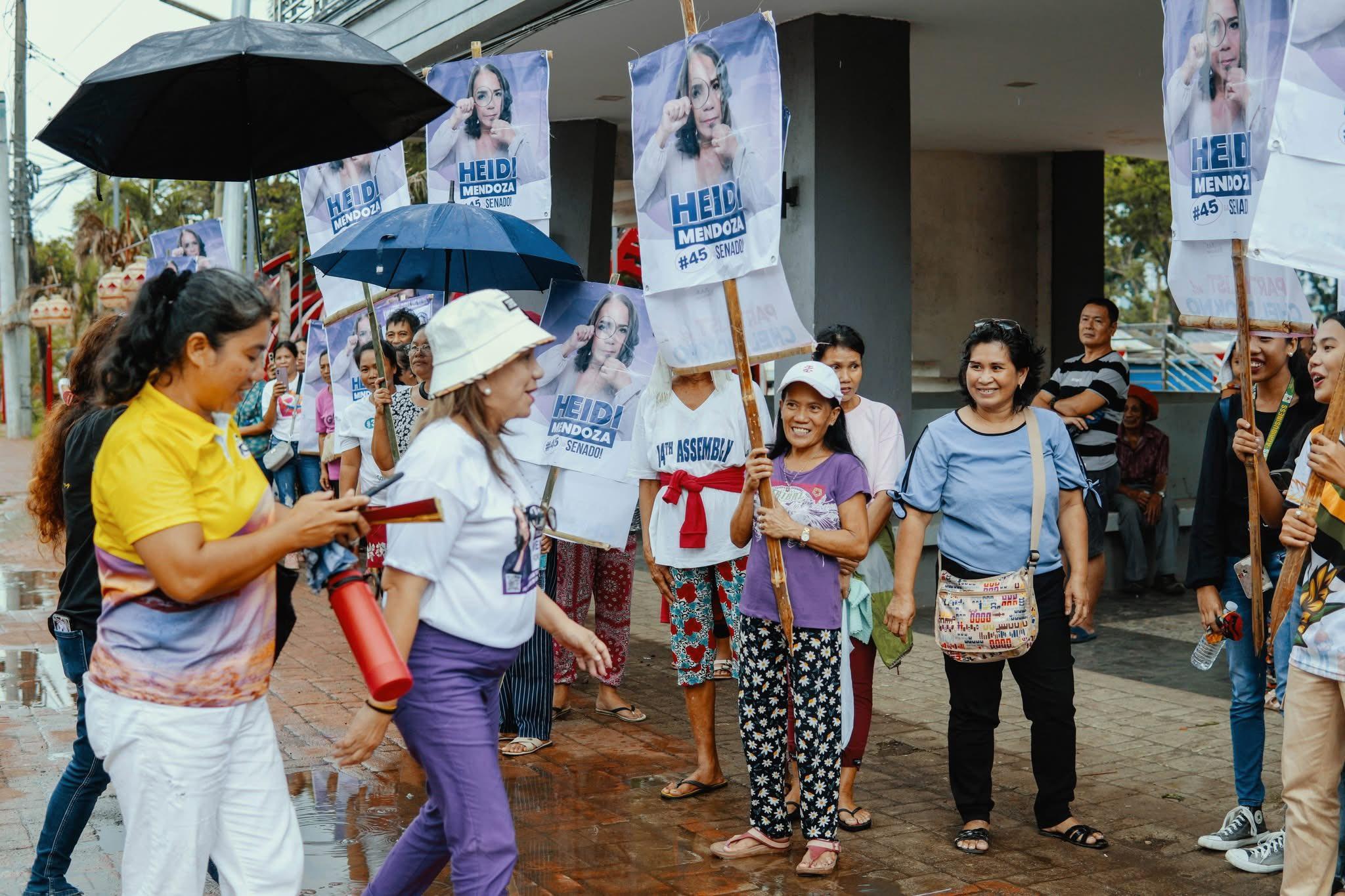
Her favorite anecdote is about a tricycle driver who knocked on her door one day, humbly offering P40 to contribute for tarpaulin printing. Some people would give bread when they are given tarpaulins to help tide over volunteer groups during their house-to-house sorties.
These are just some of the gestures that keep Mendoza going and why she refuses to give up no matter how bone-tired she gets. “Nakakatuwa kasi ito ‘yung tinatawag natin na (it is so heartwarming because this is what we call) pure volunteerism,” Mendoza told VERA Files in an interview.
Regardless of how packed her day is, the Tayabas, Quezon native makes it a point to regularly update her Facebook account. Yes, she personally manages her account – writing captions in the form of poetry, producing and publishing reels, and uploading publication materials.
***
The downside of engaging with netizens, Mendoza shared, is that people get so ‘excited’ speaking with this mother-of-three and forget that the hour is late and she needs rest. But she does not have the heart to turn them away when all they ask is a little of her time.
“They would like to engage with you. Yun parang ang taba-taba ng puso nila, napapakinggan ka nila. ‘Ay totoo po? Ikaw po ito, Ms Heidi?’ (They feel so good when they hear you speak. Is it true? This is you, Ms. Heidi?)… Ang babaw naman ng kaligayahan [nila] eh. Bakit hindi mo pa ibigay? (They’re so easy to please, so why not give it to them),” she explained.
Free media mileage
Another strategy she has embraced is to accept every invitation for an interview – whether it’s early in the morning or late in the evening over Zoom. As taxing as this can be, Mendoza knows she needs the exposure and it is an effective way for people to know and evaluate her qualifications.
She takes advantage of precious media mileage which her more seasoned – and wealthy – opponents would just pay for (through political ads) instead of sitting down to get their brains picked on burning issues.
Mendoza often sighs and thinks “sanaol” (a popular comment when someone has something you want) when in the middle of a radio interview, for example, a political ad of other candidates would be played.
When she is asked to talk about her advocacies – accountability, anti-corruption and transparency – in a lecture or forum, Mendoza says she can easily prepare by repeating or updating materials she usually uses. But during interviews when she is requested to react to hot issues or answer questions on a variety of topics, it can be mentally draining for her. Still, she does not ask for questions in advance, preferring to be spontaneous and think on her feet.
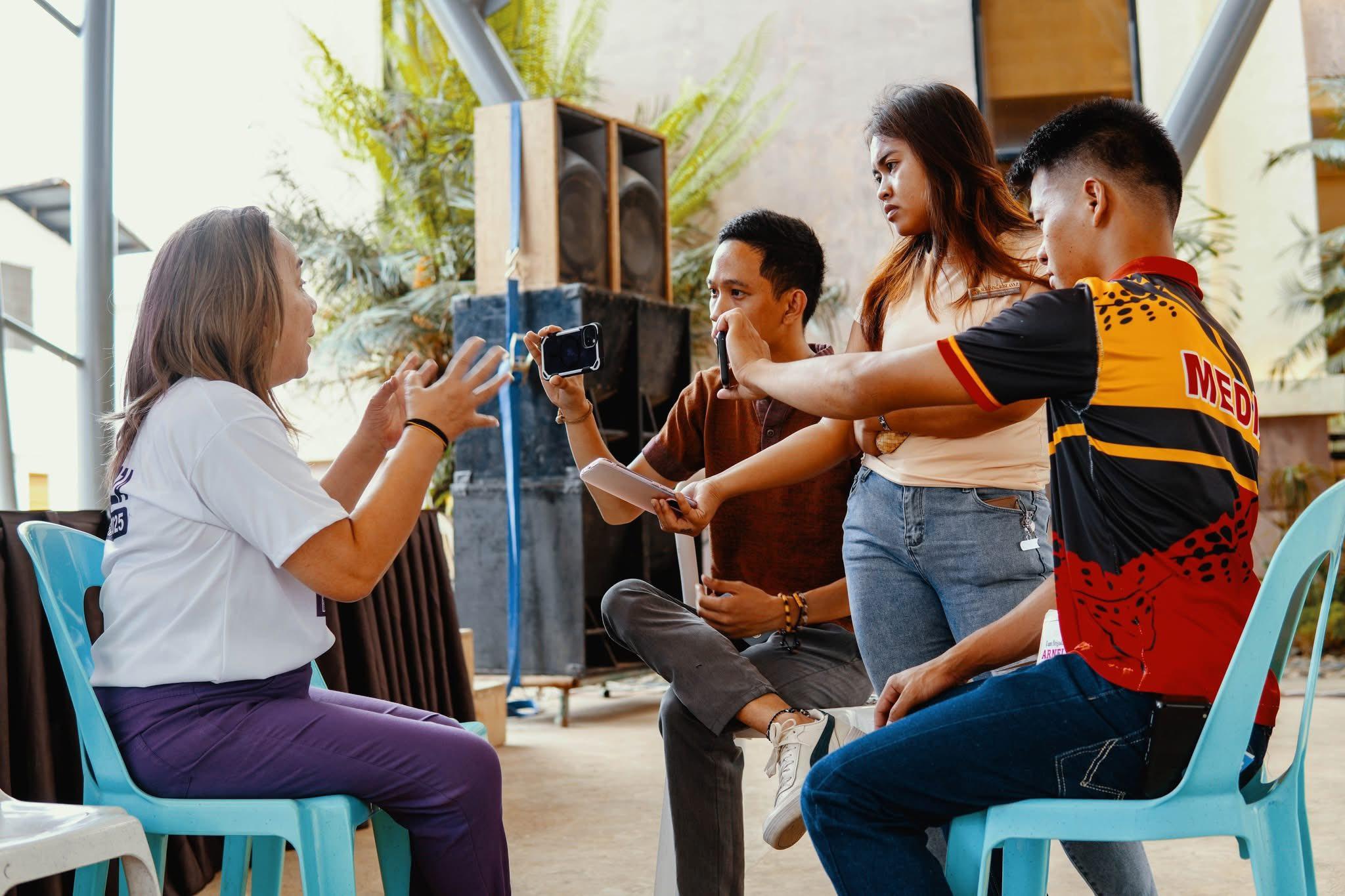
“Eh ako pa naman, hindi pwedeng may maisagot lang. Kailangan mailabas ko yung tamang ideas. Kailangan nakakarinig ng mga sagot na makatotohanan,” (I’m not the type to just give any answer. I need to bring out the right ideas. People should be hearing truthful answers), the former COA officer-in-charge explained.
While interviews can be nerve-wracking, Mendoza believes these give her the opportunity to share with the public what she knows, how she engages in discourse, and show people her humanity.
Schools as a platform
Since her team is constantly looking for a platform to expose Mendoza to more people, speaking in university campuses has been very helpful but this has its own challenges.
Sharing the stage with politicians is tricky, especially when Mendoza talks about corruption and transparency in governance. Some schools, she discovered, can also succumb to political pressure and make it difficult to reach out to their students. Some of her scheduled talks suddenly get canceled because of policies and rules imposed by university administrators.
“In-approve na ng presidente, [biglang] kinancel dahil may memorandum daw na bawal magsalita tungkol sa politika, tungkol sa eskwelahan… nag-push back ako ng konti. Anong tungkol sa politika? I’m not even asking them to vote for me,” the former dean of the College of Management and Accountancy & Graduate School of the PHINMA Laguna Network argued.
Out of respect for schools who ask to do away with politics during these talks, Mendoza does not wear her campaign shirt but puts on outfits of her campaign color – purple.
The response among young voters is inspiring, she said, because they are hungry to learn and are open to discussions on accountability, transparency and the process to fight corruption that is so prevalent in government today.
The whistleblower
In her informal talks with political analysts, Mendoza has also learned that to win an election, a candidate must score high in three areas: awareness, preference and trust. She is first to admit that her team still has a lot of catching up to do in terms of raising awareness about her as many people still don’t know who she is.
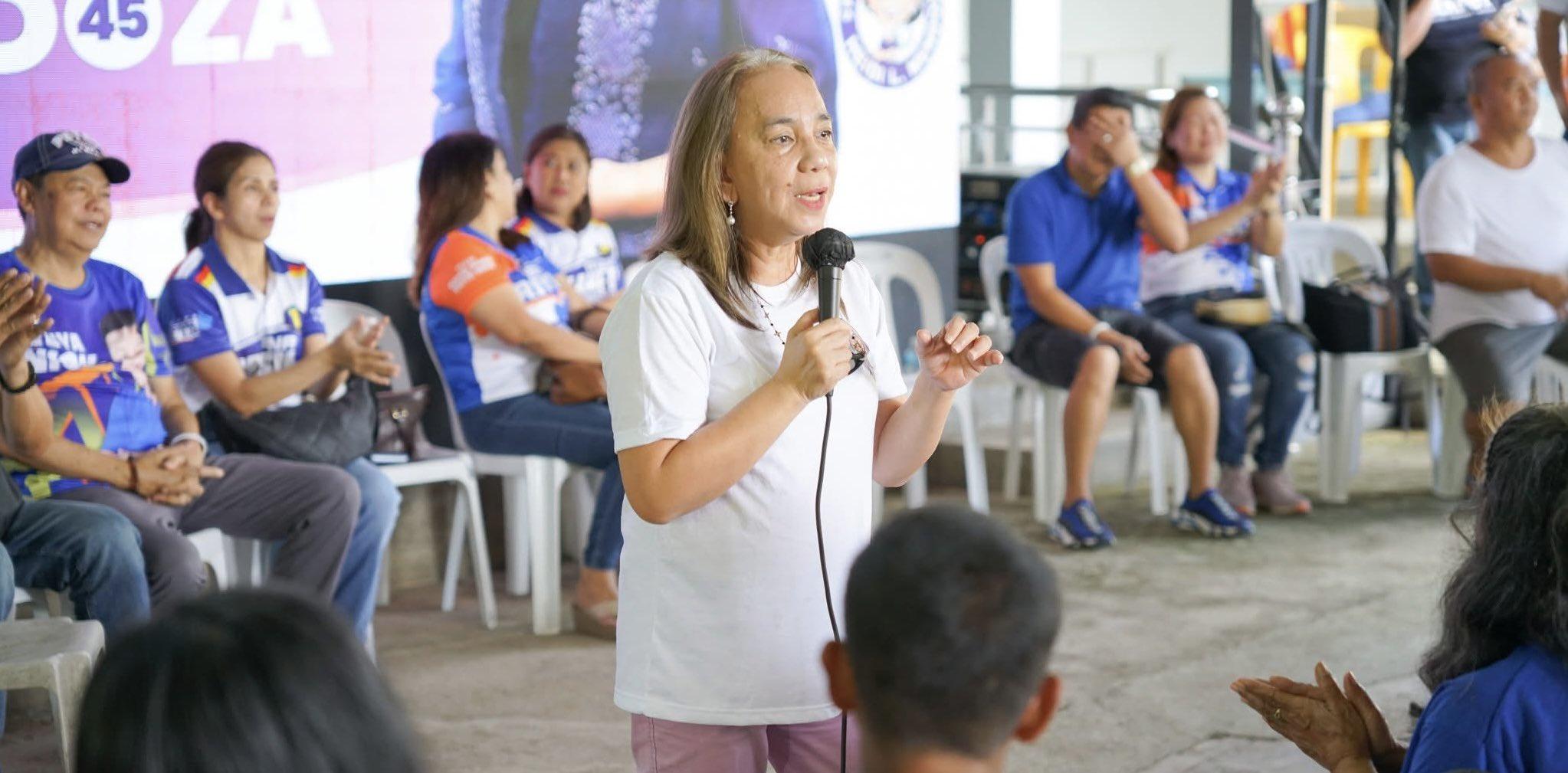
Mendoza’s claim to fame is being a feisty whistleblower who used her expertise and experience as fraud investigator in taking on a military general accused of corruption and the influential Binay family of Makati City charged with graft and plunder.
In 2011, she exposed various anomalies in the Armed Forces of the Philippines (AFP), which led to the conviction of former comptroller Maj. Gen. Carlos Garcia for corruption, plunder and bribery. Evidence documented by Mendoza detailed how the former military general siphoned millions of pesos from the AFP, including the diversion of funds from the United Nations intended to support peacekeeping missions overseas.
Mendoza’s audit findings were used as a basis to file graft charges against former Makati mayor Dr. Elenita Binay, first for the rigged bidding of office furniture in 2000, then the overpriced medical equipment worth P70.56 million when the actual cost was only P9.31 million.
Her investigations would also lead to the filing of cases against the mayor’s husband, former vice president Jejomar Binay, during his term at Makati’s city hall, and their son, Jejomar Erwin “Junjun”, who succeeded his father, for the overpriced P2.3-billion Makati Parking Building.
Despite threats to her life and the delay in her being confirmed as a COA commissioner, Mendoza never backed down and continued doing her job to protect the people’s money.
The former professor simplifies a complex issue like corruption for people to understand her fight against it.
“Yung kurapsyon o katiwalian ay pagkuha sa pera ng bayan mula sa kung saan siya dapat gamitin. Napupunta sa bulsa ng iilan,” she tells voters. “Ang katiwalian ang umaagaw ng pagkain na dapat mas mababa ang presyo at dapat ay mas marami ang nakaka-afford… mas marami ang nakakakain at walang nagugutom.”
Who is Heidi Mendoza?
She consistently declares during sorties that “hindi ako magnanakaw” (I will not steal). For all the years and opportunities that came her way to enrich herself, Mendoza says that even as a young girl in Tayabas, she never aspired for riches despite her family’s modest life.
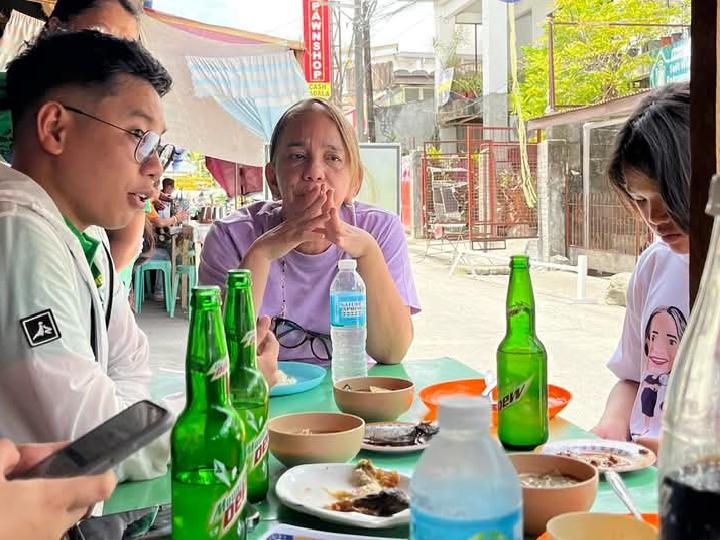
Her father, Agapito Lloce, was a policeman and her mother, Silveria Reyes, a housewife. Mendoza wanted to be a doctor, but she had to forego medical school to enable her other siblings to go to school.
Instead, she became a scholar at the Sacred Heart College in Lucena City, Quezon, became a certified public accountant in 1984, and holds a master’s degree in public administration from the University of the Philippines and in national security administration from the National Defense College.
Mendoza is married to former history professor at the Ateneo University Roy Mendoza, and they have three children – all professionals now – with lawyer-daughter, Paula, always at her side while campaigning.
“When she works, it’s as if she has no husband,” Roy once said in a 2005 speech honoring his wife. “She gives everything she has and can’t and won’t rest until she’s finished her job.”
Mendoza looks back and says that even if she had achieved her dream of becoming a doctor, she still does not see herself being rich. Instead, she would be immersed in medical missions to help the needy, to give back – and politics would be out of the question.
“Ayaw kong yumaman ng hindi sa tamang paraan,” she declares, insisting that the only way she sees herself becoming wealthy is through legitimate means: .
A comfortable life with people around her enjoying the same comforts as herself is what she prefers, so paying it forward is how she wants to live her life.
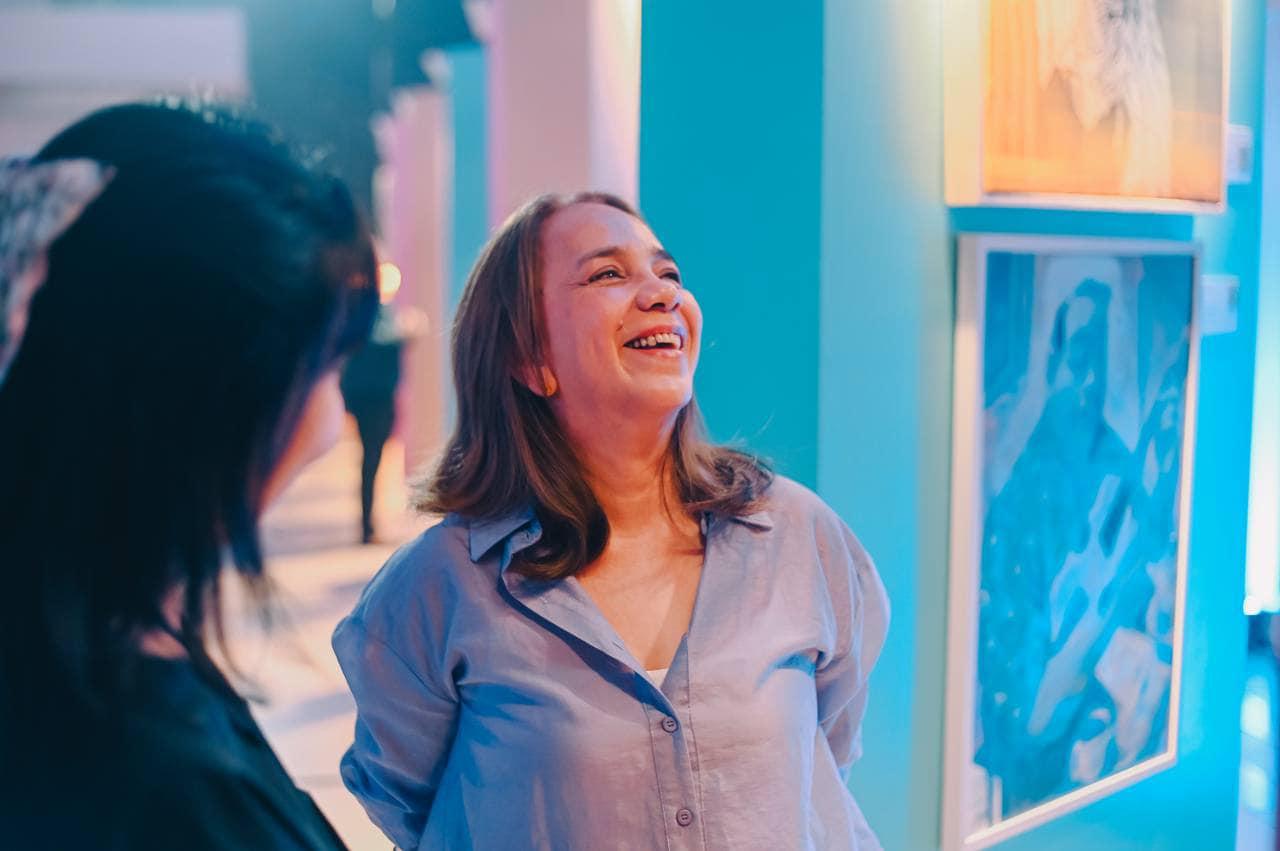
As passionate as she is about fighting corruption, Mendoza finds it relaxing to engage in artistic pursuits. She paints, sews, converts trash into useful things and is into paper-cutting. Her paintings would sometimes be accompanied by a poem and many of her posts on social media take on some form of poetry.
“Ang painting ko, kung ano lang maisipan ko,” she shared.
Mendoza may have held prestigious positions, but she describes herself as simple – from her clothes, to going out without makeup, napping at the airport or taking breaks at small eateries. Many are disarmed by that simplicity and grateful smile she wears to greet everyone who welcomes her even after a long day of stumping,
***
With less than a month before election day, Mendoza continues to play catch-up to land in the Magic 12 of the Senate. She gets inspiration from her young volunteers who initiated a collective effort to help with her campaign. Their excitement and grit boost her spirit.
“Kung merong excited at sabik sa laban na ito, excited din ako,” she said.
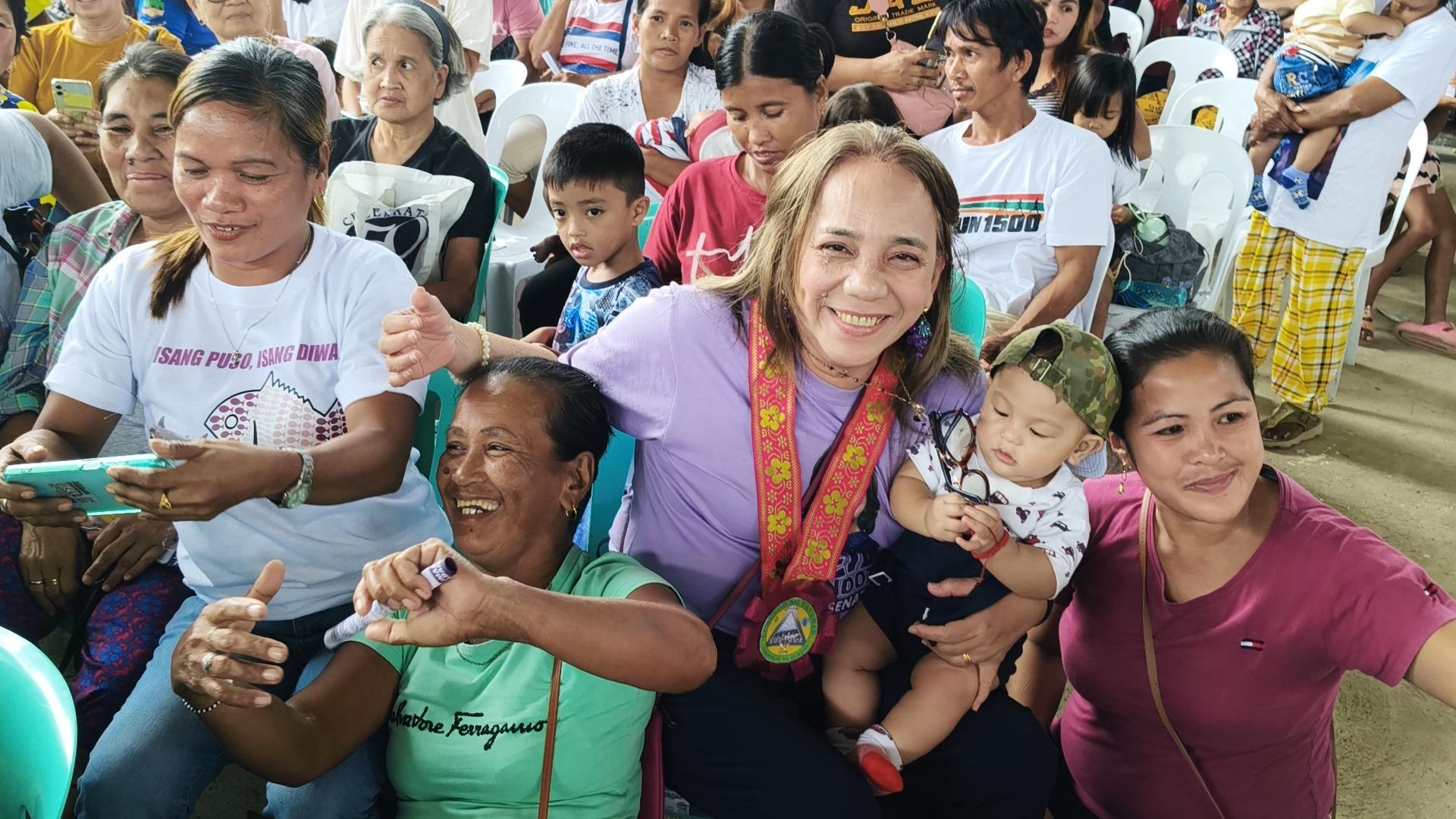
Mendoza has braved threats to her life and family especially at the height of her whistle-blowing days. Running for the Senate is but another challenge and she is not backing down, regardless of the bumps along the way.
“Kapag pulitiko ka, you will go [with] how to be popular. If you’re a public servant, wala… talagang trabaho lang kung ano ang tama,” she explained, insisting that changing her stance about issues is betraying people’s trust just to gain popularity.
Politicians cannot afford to lose but public servants can. “Parang ang sarap matulog na alam mong people speak highly of you,” Mendoza said.
And this candidate, for one, sleeps well.
(All photos courtesy of Heidi Mendoza Facebook page)
